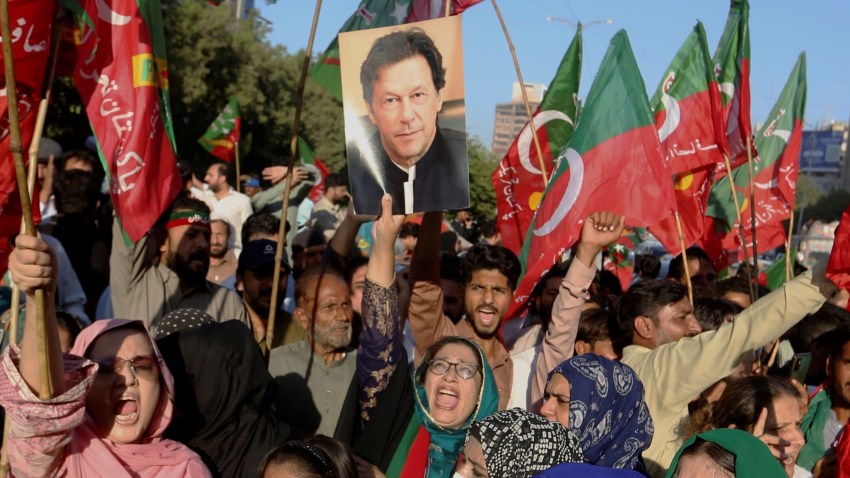In Pakistan, suspense is in the air. Former Prime Minister Imran Khan’s followers have resumed their march on Islamabad, after a failed assassination bid on Khan interrupted it on Nov. 3. Meanwhile, the powerful army chief, Gen. Qamar Javed Bajwa, is scheduled to retire by month’s end.
Amid the uncertainty, Prime Minister Shehbaz Sharif took off for an unscheduled trip to London to meet his brother, Nawaz Sharif, the three-time former prime minister who has a seven-year prison term for corruption hanging over his head back home. And that same day, the corps commanders of the Pakistani army convened for their monthly conference, yet conspicuously failed to issue a customary post-conference press release summarizing its outcomes.
Both of these high-level meetings center on the questions at the heart of the political crisis that has been consuming Pakistan for most of this year: When will the next general elections take place? Who will lead the Pakistani army in the years to come? What are the prospects for a comeback by Khan, who was removed by a parliamentary vote of no-confidence in April? And is there any way out of the political stalemate that doesn’t lead to unrest and violence?

